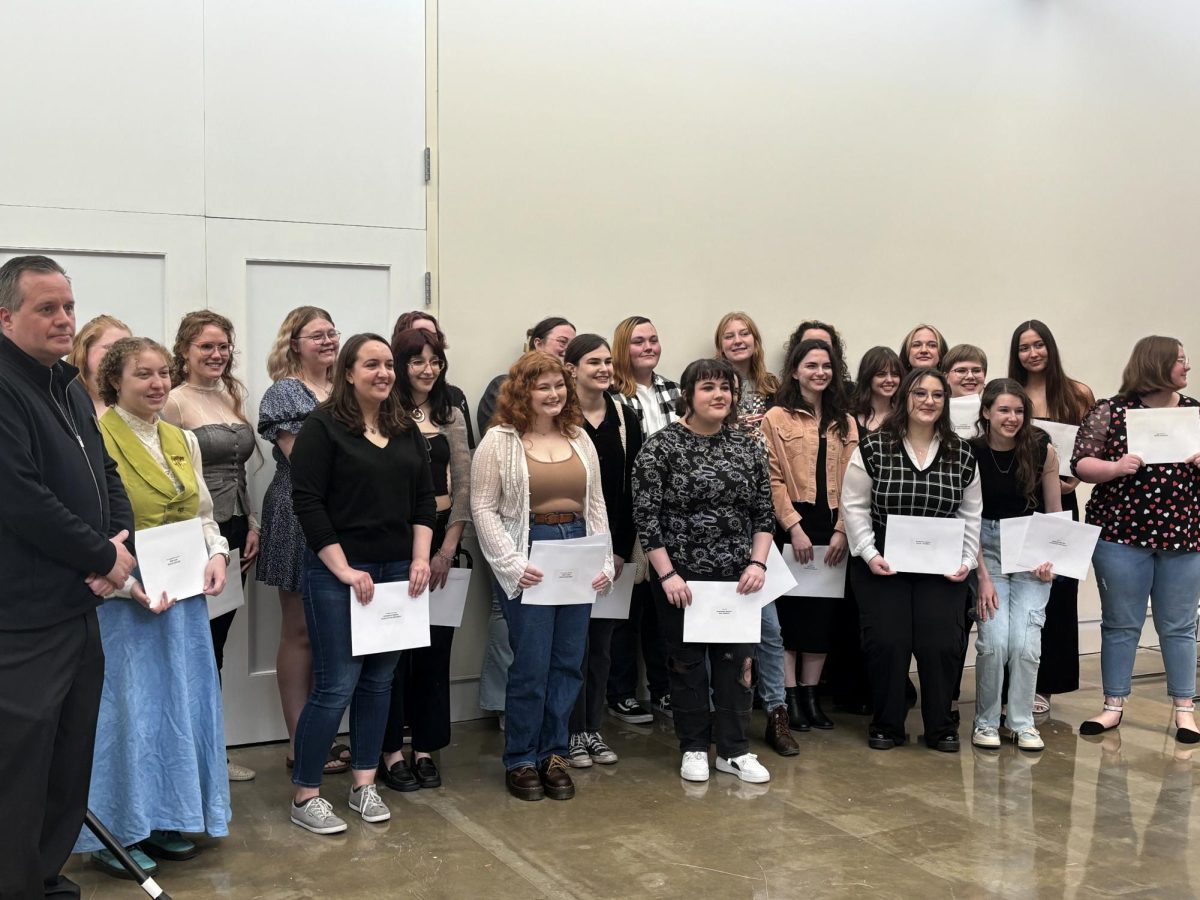Greeks Unveil History of Strolling
February 11, 2016
In dances ranging from hopping to shimmying, members of the National Pan-Hellenic Council have left their marks on many college campuses.
In a forum titled “The History of Stepping and Strolling,” presented by the NPHC, students were able to get information on why NPHC members stroll and step and the meaning behind their dances.
Ashley Howard, a senior communication studies major, and Maliya Smith, a junior psychology major, hosted the forum.
The night included a panel that consisted of six panelists, who were Yolanda Williams, a gateway advisor, Jarrett Moore, a junior applied engineering and technology major, Kathryn McIntosh, a graduate student, Eric Echols, a senior political science major, Breanna Young, a senior applied engineering and technology major and Phillip Love, a senior political science major.
The NPHC has nine sorority and fraternity organizations. Eastern only has seven of those organizations, which include: Alpha Phi Alpha Fraternity, founded in 1906 on the campus of Cornell University, Kappa Alpha Psi Fraternity, founded in 1911 on the campus of Indiana University, Omega Psi Phi Fraternity, founded in 1911 on the campus of Howard University, Delta Sigma Theta Sorority, founded in 1913 on the campus of Howard University, Zeta Phi Beta Sorority, founded in 1920 on the campus of Howard University, and Sigma Gamma Rho Sorority, founded in 1922 on the campus of Butler University.
The members of the organizations came together to give the audience inside information on their organizations and the personal meaning to their sororities and fraternities.
The forum opened up with a YouTube video titled “From Death Marches to Dance Halls: A Brief History of Strolling”.
In the video, they stated stepping and strolling is dated from hundreds of years ago in African history.
Back then, Africans used dancing in circles to symbolize unity and strength, which is what the members of these different organizations use strolling for in the present day.
The video also emphasized that stepping can be dated back to when worshippers shifted their feet and stomped in circles to symbolize the connection between the past, present and their future.
Stepping was known as The Death March, the final pledge process of the Black Letter Greek Organizations.
Howard said the first step show took place in 1976 at Howard University.
Williams said when stepping and strolling came to college campuses it became a show.
“It is a really unique performance,” Williams said. “They put their hearts and souls on the stage.”
Echols said every organization wants to show different aspects of themselves during their stepping and strolling.
“Even though we are all in different organizations, we all still encourage each other to do great things,” Young said.
Williams said stepping and strolling is a show of unity among the members of the organizations.
It is also a big controversy when someone breaks or interrupts the line of a sorority or fraternity.
“We are taught by our organization that nobody is to ever break our line,” Williams said. “No matter where, no matter when, it is a connection that we have and we are all taught that in some language.
An audience member asked what would happen when someone who is not in his or her organizations is found stepping or strolling.
Moore said fraternities are known to do events such as “Stroll like an Alpha,” “Stroll like a Kappa,” or “Hop like a Que” and after these events are over there are still individuals who believe that it is OK to continue the dances.
The entire panel said strolling or stepping when you are not in an organization is a sign of major disrespect.
Moore said because of this, Omega Psi Phi would never host “Hop like a Que” on Eastern’s campus.
The forum began to discuss why the panelists joined their organizations and what an individual should do if they are interested in an organization in the NPHC.
“As long as I am living, Delta will always live with me,” Howard said.
Torri Griffith can be reached at 581-2812 or [email protected]

















































